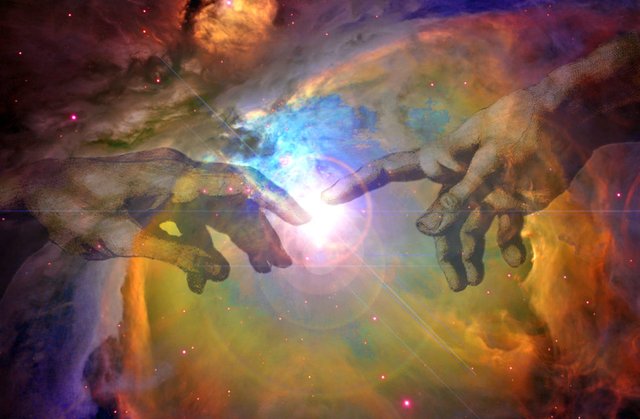
The purpose of Christ's incarnation
So far we have described how the link between pleasure and pain was established after the Fall. Pleasure was a result of the irrational movement of the faculty of the soul , with its natural consequence the coming of pain, along with the entire law of death. This combination of pleasure and pain became a law of human nature. Obviously, while living a life contrary to nature, man could not be delivered from this state which had become natural. Christ's incarnation contributed to man's liberation from this connection between pleasure and pain. St. Maximus the Confessor also makes some marvelous observations on this point too. It was absolutely impossible for human nature which had fallen to voluntary pleasure and involuntary pain to return to the former state "had the creator not become man". The mystery of incarnation lies in the fact that Christ was born human, but the beginning and cause of His birth was not sensual pleasure, for He was born of the Holy Spirit and the Virgin Mary, outside the human way of generation, and He embraced pain and death by His own free choice . For man, pain came as a result of sin, it was involuntary. While for Christ, who was born without sensual pleasure, pain was received by choice.
All humans born after the transgression, are born with sensual pleasure, which precedes their birth, because man is an offspring of his parents pleasure and, of course, no one is free, by nature, from impassioned generation provoked by pleasure. Thus man had the origin of his birth "in the corruption that comes from pleasure" and would finish his life "in the corruption that comes through death" . Therefore, he was a complete slave to pleasure and pain "and he could not find the way to freedom". Humans are tortured by unjust pleasure and just pain and, of course, by their outcome which is death.
For man to return to his previous state and to be deified, an unjust pain and death without cause had to be invented. Death had to be without cause, not to be caused by pleasure, and unjust, not following an impassioned life. In this way, most unjust death would cure unjust pleasure which had caused just death and just pain. In this way mankind would enjoy freedom again, delivered from pleasure and pain. Christ became perfect man, having a noetic soul and a passible body, like ours, but without sin. He was born as a man by an immaculate conception and, thus, did not have any sensual pleasure whatsoever, but voluntarily accepted pain and death and suffered unjustly, out of love for man, in order to revoke the principle of human generation from unjust pleasure, which dominates human nature, and in order to eliminate nature’s just termination by death. Thus, Christ's immaculate conception as man and His voluntary assumption of the passibility of human nature, as well as His unjust death, liberated mankind from sensual pleasure, pain and death.
Christ's birth as man took place in a way contrary to that of humans. After the Fall, human nature has its principle of generation in "pleasure-provoked conception by sperm" from the father. A direct consequence of this sensual birth is the end, namely "painful death through corruption." But Christ could not possibly be ruled over by death, because He was not born in this pleasure-provoked way. With His incarnation, Christ offered a different principle of generation to man, the pleasure of the life to come, by means of pain. Adam, with his transgression, introduced a different way of generation, a generation originating in sensual pleasure and ending in pain, grief and death. Thus, everyone who descends from Adam according to the flesh, justly and painfully suffers the end from death. Christ offered a different way of generation, because, through His seedless generation (birth) and His voluntary and unjust death, He eliminated the principle of generation according to Adam (sensual pleasure) and the end which Adam came to (pain-death). In this way "he liberated all those reborn spiritually in him".
The way by which Christ became incarnate and cured human nature reveals indisputably that He is wise, just and powerful. He is wise because He became a true man according to nature without being subjected to any change. He is just, because He voluntarily assumed passible human flesh, out of great condescension and love for man. This is also why He did not make man's salvation tortuous. He is also powerful, because He created eternal life and unchangeable dispassion in nature, through suffering and death, and in this way He did not show Himself to be at all incapable of achieving the cure of human nature.
I don't care what Maximum said. It sounds unbiblical.
Downvoting a post can decrease pending rewards and make it less visible. Common reasons:
Submit
Well, the time of writing of Bible, and the time when Maximus lived isn't the same. Moreover, he based his interpretation on Bible and teachings of the Church. Church wrote the Bible, it is not the other way around. Bible is product of Church.
Downvoting a post can decrease pending rewards and make it less visible. Common reasons:
Submit